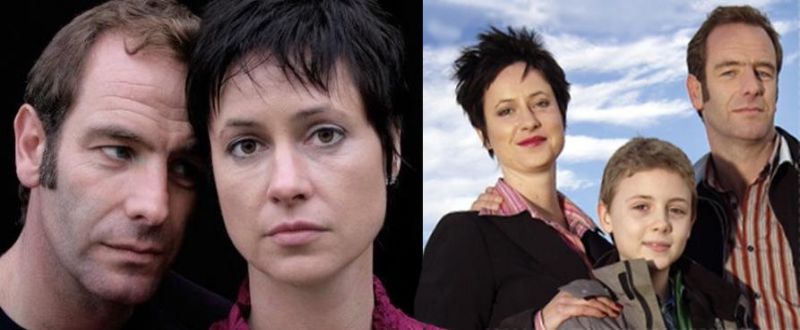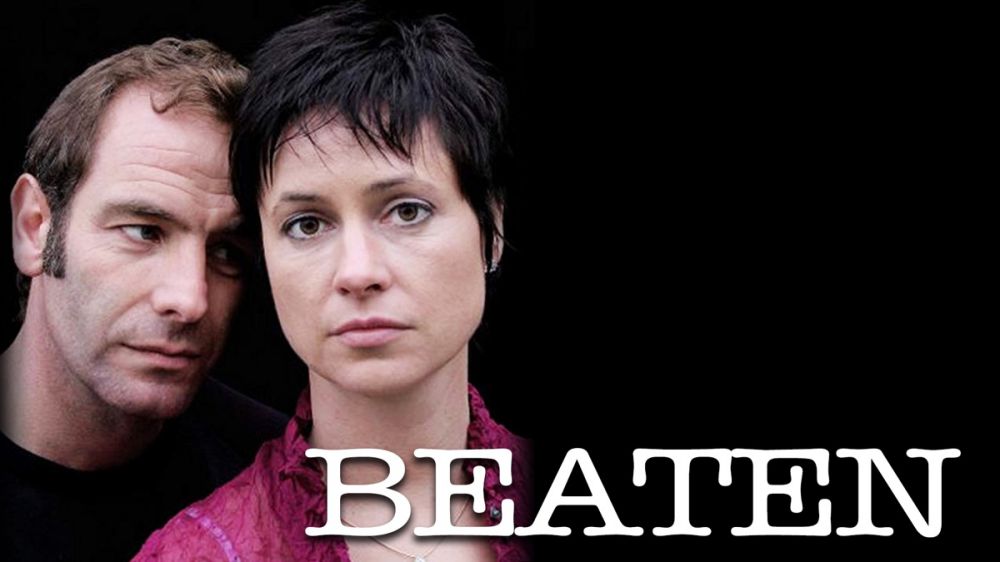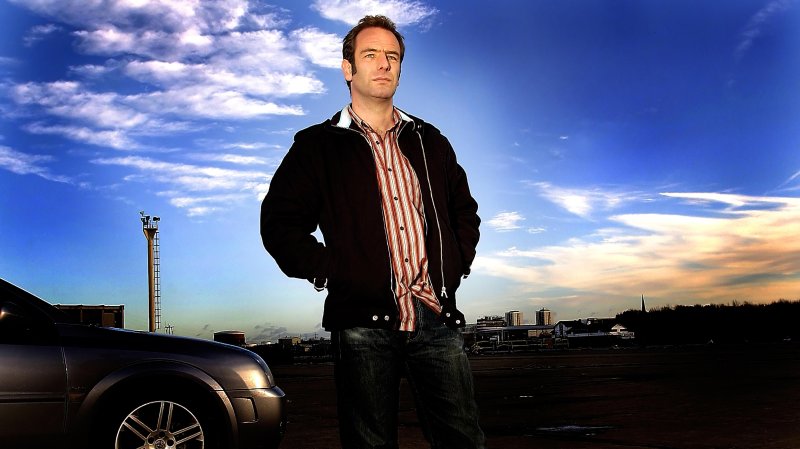


ROBSON GREEN RETURNS TO BBC DAYTIME IN DRAMA SPECIAL
Alison Sharman, Controller, BBC Daytime, has commissioned North East England production company Coastal Productions to make a one-off drama for 2005 starring Robson Green.
Beaten, made by Green's own production company, will focus on the issue of domestic violence in the home of a Newcastle docker, and will go out on BBC ONE next year.
It will be directed by Jon East and written by Alison Hume. The Executive Producer is Sandra Jobling.
Alison Sharman says: "Beaten will be a thought provoking and powerful drama for the BBC Daytime audience, and we're thrilled to be collaborating with Robson again."
Robson Green says: "This commission from Alison Sharman is fantastic news for Coastal and it's great to be working with the BBC again.
"Beaten will raise many important issues and I'm really excited to be working with Jon East and Alison Hume."
Coastal Productions was set up by Robson Green and Sandra Jobling eight years ago.
It has co-production credits for Grafters, Rhinocerous, and Touching Evil III, as well as Wire In The Blood and Take Me as independent productions.
Beaten is Coastal's first BBC commission.
In 2003 Robson Green starred in Venus and Mars, one of the successful series of Afternoon Plays on BBC Daytime.
“I have a caravan [on set], people call me Mr Green – sometimes sir,” he quips. “They bring me my food and I get paid quite a substantial amount of money. I’ve got a lovely house and a happy family – why do I need to be unhappy ? "
"I’m faking sincerity – that’s what I do, it’s my job. I think that’s one of the reasons why I’ve survived for 20 years and I haven’t gone cuckoo !"
“I’m in a very privileged position and I wouldn’t be in such a ridiculous situation where I come home and can’t cope with a part. It’s just daft – it’s not real.”
The third of four children – he has two older sisters and a younger brother – Robson Golightly Green was named after a tradition involving the eldest son being given a surname for his first name: Robson was his grandmother’s maiden name and Golightly his great-uncle’s surname.
As a child, he dreamed of joining the RAF, but was to find himself flying high in a different theatre of operation. It was in 1984 that Robson, tempted by a starring role with a professional theatre company, left the relatively sheltered harbour of Newcastle’s Swan Hunter shipyard, where he worked as a designer.
The TV role that propelled him to public attention was when he was admitted to Casualty, BBC One’s long-running hospital drama, as porter Jimmy Powell.
He then served as Fusilier/Lance Corporal Dave Tucker in Soldier, Soldier, in which he starred with Jerome Flynn. The duo would go on to be linked through their No. 1 hit, Unchained Melody.
He was arresting as DI Dave Creegan in the crime drama Touching Evil, made a careful choice to star in Reckless and sealed his reputation as one of our most hardworking actors with his role in Grafters, starring with Stephen Tompkinson.
There was a crowning role in The Student Prince and he solicited more success as charismatic lawyer Steven Bradley in the BBC drama Trust.
The 40-year-old actor has homes in Newcastle and in Surrey – it’s a 45-minute plane trip between the two – where he lives with second wife Vanya, son Taylor, five in April, and stepdaughter Lara.
Taylor’s doting dad confides: “He’s reading now and he’s incredibly intelligent, very, very funny and very loving. And what I’m enjoying at the minute is how confident he is.”
Robson’s own confidence was evident at the age of nine, when he took centre stage in the starring role of Joseph And The Amazing Technicolor Dreamcoat.
“I don’t know where that confidence came from,” he muses. “I don’t know if it was a psychological need to escape, which I’m sure a lot of therapists would say it was, but I wasn’t in an abusive upbringing.
Mum and dad were very hard-working and they cared for each other. They did divorce eventually, but there was nothing destructive going on.”
Robson’s father used to sing in clubs and the actor ponders on whether his early confidence is genetic.
“My dad has a beautiful singing voice – absolutely stunning,” he says, proudly, “so maybe that’s where my initial ability to stand up in front of a group of people came from.”
Although crossing the pond is a tempting career move, Robson has no intention of being tied down by trans-Atlantic strings.
“I have ambitions to do movies, and I was recently offered a TV role, but if you do television in America, which is on offer quite frequently, you sign studio deals,” he explains.
“Basically, it’s a five-year deal and, within those five years, you can do all sorts of shows for them – but I would have very little control over where I’m going to be and what I want to do, for the next five years. At the age of 40, I’d just feel uncomfortable like that,” he admits.
“I’m very happy here with my family and the work I’m involved in.”
Robson did audition for director Ron Howard and Cinderella Man, the true story of Depression-era boxing legend James Braddock.
“Although I didn’t get the part, it was a joy to meet him [Howard], and if there was a movie, that would have to take serious consideration,” reveals Robson.
“I go to America frequently because I’m invited by certain producers, so that’s very pleasant. I’ve never gone over there to just say, ‘hi, I’m here’.
They’ve always invited me, which is the best way, I think. Going all that way on spec carries a certain hint of desperation !”
INTERVIEW DU 12 MARS 2005
As Robson Green propels a powerful fist into the face of his screen wife, the stomach-wrenching issue of domestic violence is dragged from its dark, murky world and into the glare of the spotlight in Beaten, BBC Daytime’s thought provoking and powerful new drama.
But viewers may not be seeing the true, tortuous picture when the complex, emotional story unfolds, as Robson hints to Doreen Brooks.
The Northumberland-born actor describes Alison Hume’s story as “incredibly intelligent, but very simple to tell. It’s about how, sometimes, people get involved in relationships that are incredibly unhealthy – how we convince ourselves that everything will be fine, when actually it’s not, and it’s not normal,” explains Robson, during a break from filming on location in Newcastle.
“We are self-delusional with that – our ability to be self-delusional is amazing; you’re in a relationship that is abusive, that is going nowhere, and you’re convincing yourself that everything will be fine.”
The drama, the first BBC commission from Robson’s own company, Coastal Productions, opens at what he calls “the point of no return”.
“You see my character, Michael, launching his fist into his wife Stephanie’s [Saira Todd] face. You think you see that – I would underline think,” he stresses. “Their son [Corey J Smith] witnesses this act, so thinks his father has been battering his mother. We then start telling the reason for that particular moment.”
Robson adds cryptically: “You will side with the woman – then, suddenly, I hope your allegiances change. Then at the end you don’t side with anybody, but empathise with the boy, who’s actually on the receiving end of this mental misunderstanding.”
Beaten also deals with how children are brought up, and Robson recalls: “When I was a kid, in the late Sixties and early Seventies, there was that old cliché of, ‘they’ve made their bed, so they’ll have to lie in it’. You were actually made to stay in that abusive relationship, whether it be physical or mental,” he declares incredulously.
“Society expected it of you – I didn’t know how humiliating divorce was then but I now realise how it was seen as such a failing, so you had to stay together.”
The role of Newcastle docker Michael appealed to Robson from the outset because, quite simply, he’s unremarkable. “There’s nothing amazing about the guy – you don’t see why he would be involved in anything like that,” says the blue-eyed star.
“He’s just a hard-working man at a shipyard who loves his wife, who dotes on his son and who loves his home. And he will not admit to himself that things are incredibly destructive – on the outside, everything’s just normal.”
Michael’s wife does retaliate but, says Robson: “You think, ‘has this been going on before he punched her ?’ As I said, you may side with her, but then you think, ‘is she hitting him ? ...or maybe she’s not ?’”
The Newcastle United fan is enthusiastic about the one-off drama, which he hopes will kick off debate about important issues.
“I’m really excited by it because when we developed the script, we thought, ‘if we get this right, it will blow people’s minds. This will really change the perception of what we hear about wife-beating’.”
There’s a dark secret in Michael’s past and, through a series of flashbacks, viewers journey into his childhood to see some of the forces that shaped the adult he became.
“It shows,” says Robson, “how an upbringing has a profound effect on how we are in relationships.” And he didn’t embark on any research for his role.
“I didn’t need to, because the script is so good and the visual grammar in it is very clear,” he explains. “And sometimes, with this type of subject, I feel instinctively uncomfortable going to, say, a centre for women who are beaten or men who are beaten, because that’s real. What I’m involved in isn’t real,” he adds.
“I’m not involved in an abusive relationship. I come home and I watch the cricket and I like fishing and I’m quite happy with my lot.
“When I played Dr Tony Hill in Wire In The Blood, he is a clinical psychologist and we dealt with destructive nature. I didn’t go to Rampton and meet serial killers or people who are seriously mentally disturbed – it’s there in the script.”
And while this miner’s son taps a rich seam of realism in his roles, he adds: “I don’t take the part home. It’s all rubbish when people say, ‘oh, I can’t sleep’, and all that. Get a life !” he exclaims.
“It’s bordering on schizophrenia. Look at me,” he stresses.